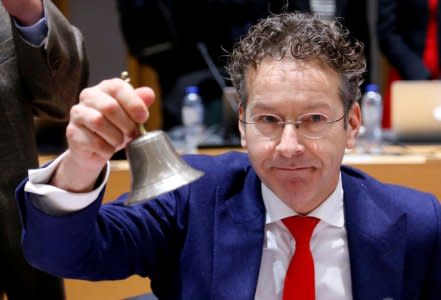Brexit delay 'inevitable', former euro chief Dijsselbloem says

Thomson Reuters
BRUSSELS (Reuters) - Britain's withdrawal from the European Union will have to be delayed beyond March to give time to agree an orderly exit, former top EU official Jeroen Dijsselbloem said on Tuesday.
Though the former Dutch finance minister who was president of the euro zone's governing body until January has no role in the Brexit negotiations, he is a veteran of EU crisis management.
A blog post on his LinkedIn page offered a rare public airing from a senior figure for the idea that the negotiation deadlock may go on.
"There won’t be a Brexit-deal this week, or even next month," wrote the 52-year-old Dijsselbloem, who holds no public position at present. He went on to enumerate the difficulties that British Prime Minister Theresa May faces among her own allies in agreeing a deal to keep close EU-UK trade relations.
Hopes of a deal at a summit this week were dashed on Sunday by continued deadlock over how to avoid a disruptive hard land border for Northern Ireland and EU officials have been playing down the urgency of cracking the problem in the coming weeks.
"Extra time is inevitable," Dijsselbloem said.
"It is needed to work out any serious deal, it’s necessary to avoid a vote in the British parliament in the short run.
"It also may be necessary to allow for new elections or a second referendum if the deal gets rejected in the medium term, which still seems pretty likely."
Senior EU officials have acknowledged the possibility that a two-year countdown to Brexit, begun when May formally notified the EU of Britain's departure under Article 50 of the EU treaty, could be extended beyond March 29 if all sides agree -- though few governments want that extension to be more than a few weeks.
Dijsselbloem, who steered his fellow Eurogroup finance ministers through five years of euro zone crisis and brinkmanship with Greece, said, however, that any delay could only be agreed with London at the last minute to crack a deal.
"The decision to stop the clock won't come until the very last minute," he wrote. "It won’t be the first time that time has provided us with solutions in times of European crises."
(Reporting by Alastair Macdonald ; @macdonaldrtr; Editing by Robin Pomeroy)
See Also:

 Yahoo News
Yahoo News 
